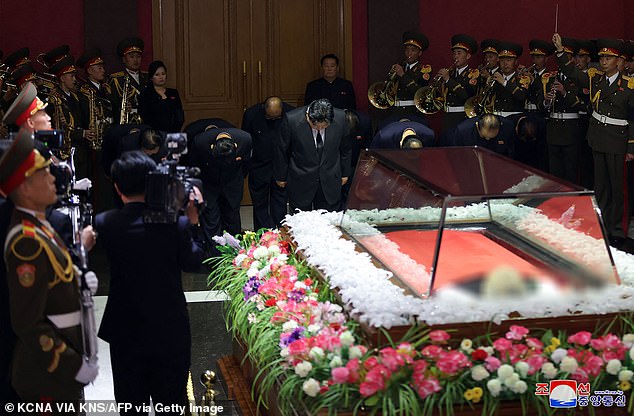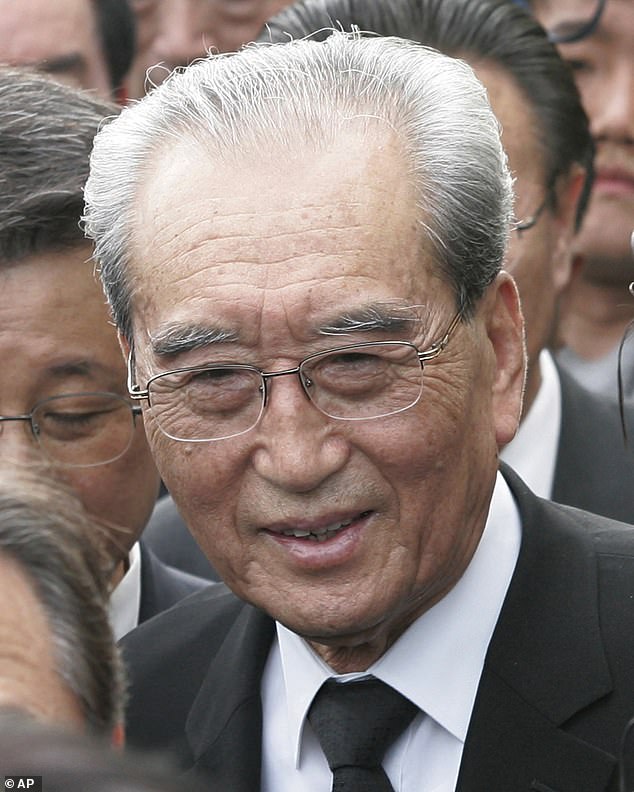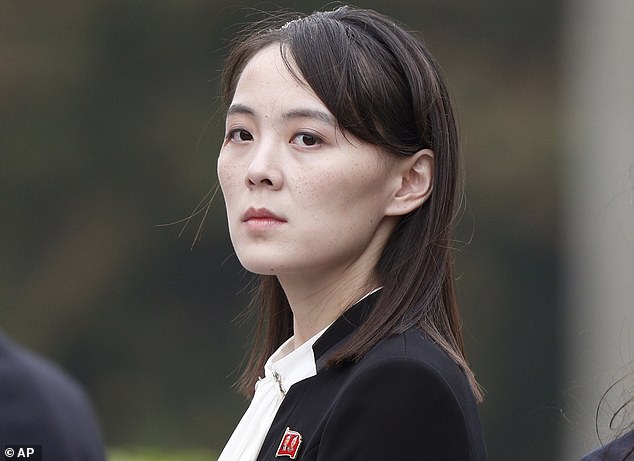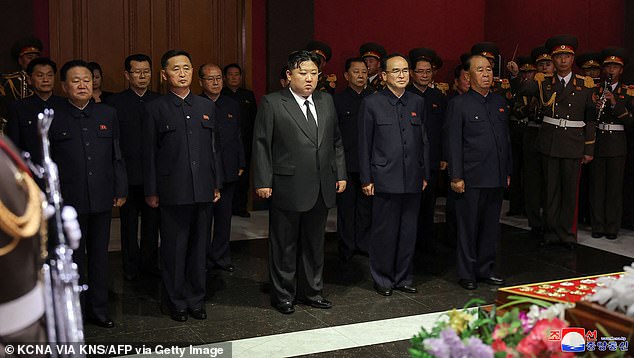North Korea’s former propaganda chief who masterminded the cult of personality surrounding the ruling Kim dynasty has died, state media said Wednesday, and leader Kim Jong Un was photographed bowing before his funeral coffin.
Kim Ki Nam died on Tuesday due to old age and “multiple organ dysfunction,” after being treated in a hospital since 2022, the country’s official Korean Central News Agency said. He was 94 years old.
Kim Jong Un visited the funeral hall early Wednesday morning, paid tribute in silence and looked around the coffin with “bitter sorrow at the loss of a veteran revolutionary who had remained infinitely loyal” to the regime, state media KCNA said.
The North Korean leader was seen bowing in front of the coffin while a contingent of uniformed soldiers serenaded them with various musical instruments.
Nam was commonly known as the Joseph Goebbels of North Korea, in reference to the Nazi chief propagandist, so his work was key to entrenching the Kim family in power.
Kim Jong Un visited the funeral hall early Wednesday morning, paid silent tribute and looked around the coffin with “bitter sorrow at the loss of a veteran revolutionary who had remained unstintingly loyal” to the regime, state media KCNA said.

North Korean leader Kim Jong Un (center) and senior officials express their condolences to former Vice Chairman of the Workers’ Party of Korea Kim Ki Nam.
In the 1970s, Kim Ki Nam was in charge of Pyongyang’s official mouthpiece, the Rodong Sinmun newspaper, according to North Korea.
He is considered the driving force behind the propaganda masterminding the Kim family’s dynasty cult, and Pyongyang state media described him Wednesday as “a veteran of our Party and the revolution, a prestigious theorist and a prominent political activist”.
An image published by the Rodong Sinmun showed leader Kim, dressed in a dark suit, solemnly paying his respects alongside senior military and party officials, in front of what appeared to be a coffin decorated with flowers.
The Kim dynasty, established by Pyongyang’s founding leader Kim Il Sung, has ruled the impoverished and isolated nation with an iron fist and a widespread cult of personality for three generations.
The family is revered in the North as the ‘Paektu lineage’, named after the country’s highest mountain and supposed birthplace of late leader Kim Jong Il.
In 2015, state media footage showed the late official Kim Ki Nam, in his 80s at the time, diligently taking notes in front of Kim Jong Un, more than 50 years his junior.
Kim Ki Nam “is the North Korean equivalent of (Nazi propaganda chief) Paul Joseph Goebbels,” said Ahn Chan-il, a defector-turned-researcher who heads the World Institute for North Korea Studies.
“It can be safely said that all the propaganda and agitation strategies of the Kim dynasty emerged from the mind of Kim Ki Nam.”

Kim Ki Nam was seen as the driving force behind the propaganda that planned the Kim family’s dynasty cult.

Kim Jong Un’s sister, Kim Yo Jong, took over from Kim Ki Nam as chief propagandist about seven years ago.
Kim Ki Nam’s role as the regime’s chief propagandist eventually passed to Kim Jong Un’s powerful sister, Kim Yo Jong, in the late 2010s.
His arrival at the propaganda department as a senior figure occurred in 2018, according to Seoul’s Unification Ministry.
In 2005, Kim Ki Nam led a North Korean delegation to visit South Korea’s National Cemetery, honoring soldiers who died during the Korean War, when inter-Korean relations were in better shape.
In 2009, the late official led a North Korean delegation to South Korea to attend the funeral of former moderate Seoul President Kim Dae-jung. During the visit, they laid a wreath signed by the then leader of Pyongyang, Kim Jong Il.
Kim Dae-jung made a historic visit to Pyongyang in 2000, where he met with Kim Jong Il, predecessor and father of current leader Kim Jong Un.
During his visit to Seoul in 2009, Kim Ki Nam met with then Seoul President Lee Myung-bak.
Inter-Korean relations have recently been at one of their lowest points in years, and Pyongyang has declared South Korea its “main enemy.”
It is regrettable that Pyongyang did not mention Kim Ki Nam’s efforts towards inter-Korean cooperation after his death, Yang Moo-jin, president of the University of North Korean Studies in Seoul, told AFP.
“It seems to show the current state of inter-Korean relations, characterized by confrontation and conflict,” he said.


